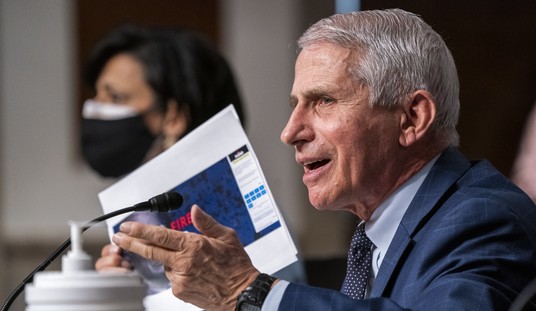Sound crazy? Before ordering me a straitjacket, consider just how much the leaked opinion draft from Justice Samuel Alito has changed all of the incentives in the US Senate. The Washington Post’s Amber Phillips starts us off with an explainer for why Senate Democrats “probably” won’t get rid of the filibuster.
The short answer is that they can’t. The longer answer is that it won’t help even if they could:
“The filibuster is the only protection we have in democracy,” Manchin told reporters this week. “We’ve protected women’s rights with the filibuster.” Sinema called the filibuster and other Senate rules “more important now than ever.”
Manchin doesn’t support codifying Roe v. Wade into law anyway; he is one of the few remaining Democrats in Congress who doesn’t support abortion rights. (Sinema does.) So even if Democrats could eliminate the filibuster for abortion, they probably wouldn’t have the votes to expand federal abortion protections. …
So if Democrats somehow managed to get rid of the filibuster for abortion, would an aggrieved Collins and Murkowski join them to support federal abortion protections? Probably not.
As The Post’s Mike DeBonis and Seung Min Kim report, both senators voted against a Democratic bill in February to protect the right to have an abortion up to about 24 weeks, which is what Roe does. They offered a narrower bill extending some abortion protections, but Democrats feared it would still allow 15-week bans, like the Mississippi law at issue in the Supreme Court’s current case. Like most attempts at compromise on such a divisive issue, Collins’s and Murkowski’s bill has no public support in the Senate from either side.
But what about the even longer answer? What happens down the road — in 2025?
By 2025, it’s very likely that Republicans will likely control the House, Senate, and White House, especially on the political and economic trend lines we’re seeing at the moment. At that point, there would be significant pressure from the base to dump the legislative filibuster to pass a federal abortion ban. Mitch McConnell pledged yesterday not to eliminate the legislative filibuster once back in the majority because to do so would “break the Senate.” Allahpundit sounded skeptical, and for good reason, but McConnell faced down Donald Trump for four years on this point with the full weight of MAGA behind him and a border wall as the potential prize. It’s possible that McConnell will hold out again, even on abortion, or perhaps even more so by saying that it’s a matter for the states.
But what if Democrats have already done the job for McConnell? Let’s say Chuck Schumer succeeds in breaking down the filibuster in the last few months of this session. He still has to get through a thicket of parliamentary obstacles that McConnell et al will generate to slow everything down to a crawl, including the budget if need be, to stop any radical legislation from getting through. By the time Republicans take over at least one chamber in January, Schumer might not have gotten anything out of it — except a free pass for McConnell to use in 2025. Or at the very least, the demolishing of the last bastion McConnell could use to temper the Senate’s actions.
Alito’s draft opinion radically changes the incentive structures in the Senate, especially if it survives largely intact into the final opinion in Dobbs. Abortion has always been a sort of performative politics in legislatures before now, but post-Dobbs, it’s no longer stuntwork but actual legislation with actual risks. Democrats cannot afford to leave a Republican-controlled Washington DC a carte blanche to enact a federal abortion ban. Even if they could reverse it a few years later, their base would revolt at the result. And post-Dobbs, Democrats will no longer have effective recourse to the judiciary to stop such legislation, which has been their strategy since 1973.
And yes, just to anticipate a counter-argument, one can make the same argument for Republican overreach, too. The incentives for both parties are now significantly tilted in preserving the institutional safeguard against extreme policy shifts. Not everyone in politics reacts rationally, but don’t be surprised when more than Manchin and Sinema game out the filibuster strategy and decide to take the War Games approach. The best decision for both parties is not to play.








Join the conversation as a VIP Member